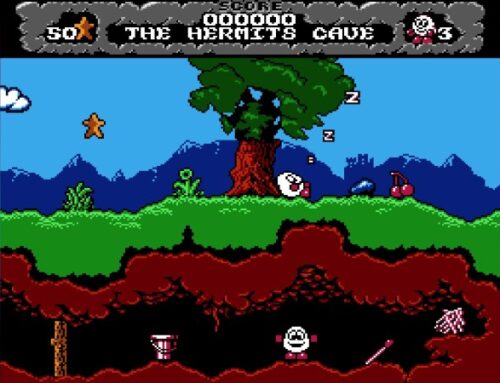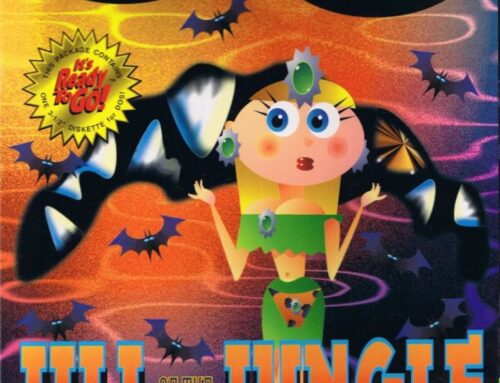Sports games aren’t popular with collectors because everyone thinks they suck. But there are some hidden gems out there to enjoy — and their lack of popularity means you can pick ’em up pretty cheap, too! Let’s explore this unloved genre!
As a gentleman who has always been on the uncoordinated side — and, in his later years, a tad on the portly side also — I have never been a particularly big fan of sports. And consequently there are a lot of sports and sports-related games that I passed over when I was younger — even, in some cases, games that were critically acclaimed, such as The Bitmap Brothers’ Speedball 2: Brutal Deluxe.
Speedball 2 was one of those games that magazines were forever banging on about as one of the best games ever, for months at a time. But despite being dressed up in a shiny, chrome-plated early ’90s futuristic dystopia sci-fi aesthetic, it still seemed far too much on the “sports” side of things for me to be really interested in it.
However, with the recent release of the Bitmap Brothers Collection 1 cartridge for the Evercade, I figured it was time I gave it a chance. And, as these things tend to go, I now see that I was wrong to ignore this game back then — it’s super-fun!

Speedball 2, for the unfamiliar, is a game in which you take command of a new Speedball team named Brutal Deluxe, just as the once-underground sport is attempting to regain a certain amount of legitimacy. Trouble is, Brutal Deluxe absolutely suck ass at Speedball, and as such they have a bit of an uphill struggle ahead of them. So it’s up to you to not only guide them on the pitch, but also ensure that you train and equip them appropriately between matches.
Speedball 2 offers several different ways to play. In single-player mode, you can compete in knockout, league and cup-style competitions in an attempt to prove your worth as Brutal Deluxe; the former is a simple string of increasingly difficult matches where you keep playing until you lose, while the cup is a four-round knockout tournament and the league is a 14-week season mode. In both League and Cup mode you can choose to play a completely managerial game if you prefer, leaving the actual on-pitch action to the computer.
In two-player mode, meanwhile, you can choose to compete over either a single game, a best of three or a best of five matches. There’s also a demo mode where you can observe how the computer plays against itself.

Regardless of which mode you play, you have the opportunity to train your players’ various attributes before a match. Spending the credits you have available to you allows you to buff up the whole team, a group of players in your formation or an individual player in various ways — across the various stats you can adjust everything from their tackle strength and resistance to how competent the AI is when you’re not in direct control of a player. You have a decent amount of control over your team in this way — though the game does lack the more in-depth strategic options seen in dedicated sports management games.
Once onto the pitch, that’s when things get interesting. Speedball 2 is a relatively simple game at heart that is somewhere between rugby and football — but with a healthy dose of pinball along the way, too. It’s this latter aspect, more than anything, that elevates it well above being “just a sports game” and into a game that can appeal to even the most hardened sports-resistant types such as myself.
It helps that the controls are simple to understand; the game’s origin on home computers of the period is betrayed by the fact that a single button does pretty much everything from tackling to passing and shooting. This makes the game enormously accessible — and despite the scope for potential disaster, it’s rare that the “context sensitive” nature of the action buttons in the game causes you to do something that costs you.

Speedball 2 is also fun because it lacks a lot of the rules that slow down real-life sports (but which, of course, make them safer to play). That means you can be as brutal as you want with your tackles, you never have to worry about being offside, and not only is beating another player to a pulp not frowned upon, it is actively rewarded with ten full points — the same value as scoring a goal.
Where Speedball 2 really shines is in the variety of alternative ways there are to score points — if you want, you can completely ignore shooting for the goal and instead take aim for the variety of pitch elements that will reward you, or simply concentrate on battering your opponents’ stamina down until you can knock them all out. The choice is yours — and the management aspect of the game means that you can tweak your team’s performance to specialise in particular areas accordingly.
For example, both sides of the pitch have an arrangement of five star-shaped lights — throwing the ball into one of these lights it up and awards you with two points, and lighting all five gives you an additional ten points on top of the ten the lights are already worth. To make life a little more difficult, though, if an opponent throws the ball into one of your lit stars, they darken it and take your points away again — so you’ll need to defend them accordingly, or play aggressively in order to light all five as quickly as possible.

There’s also a pinball-style “lane” that you can roll the ball around in order to increase all the points you score by 50% then 100% — though again, there’s often an element of “tug of war” between the two teams in order to take control of this pitch element throughout the match, since only one team can enjoy the point bonus at once.
The variety of ways to score mean that Speedball 2 matches can often be quite unpredictable — especially when playing against a friend — and are much more than simply going back and forth up and down the pitch attempting to put one between the goalposts. And that keeps it constantly interesting, adding to its arcade-style immediacy, but also allowing for plenty of depth along the way too.
Definitely a recipe for success — and proof that Speedball 2 is definitely worth spending some time with, even if you don’t think you’re normally a sports fan.





